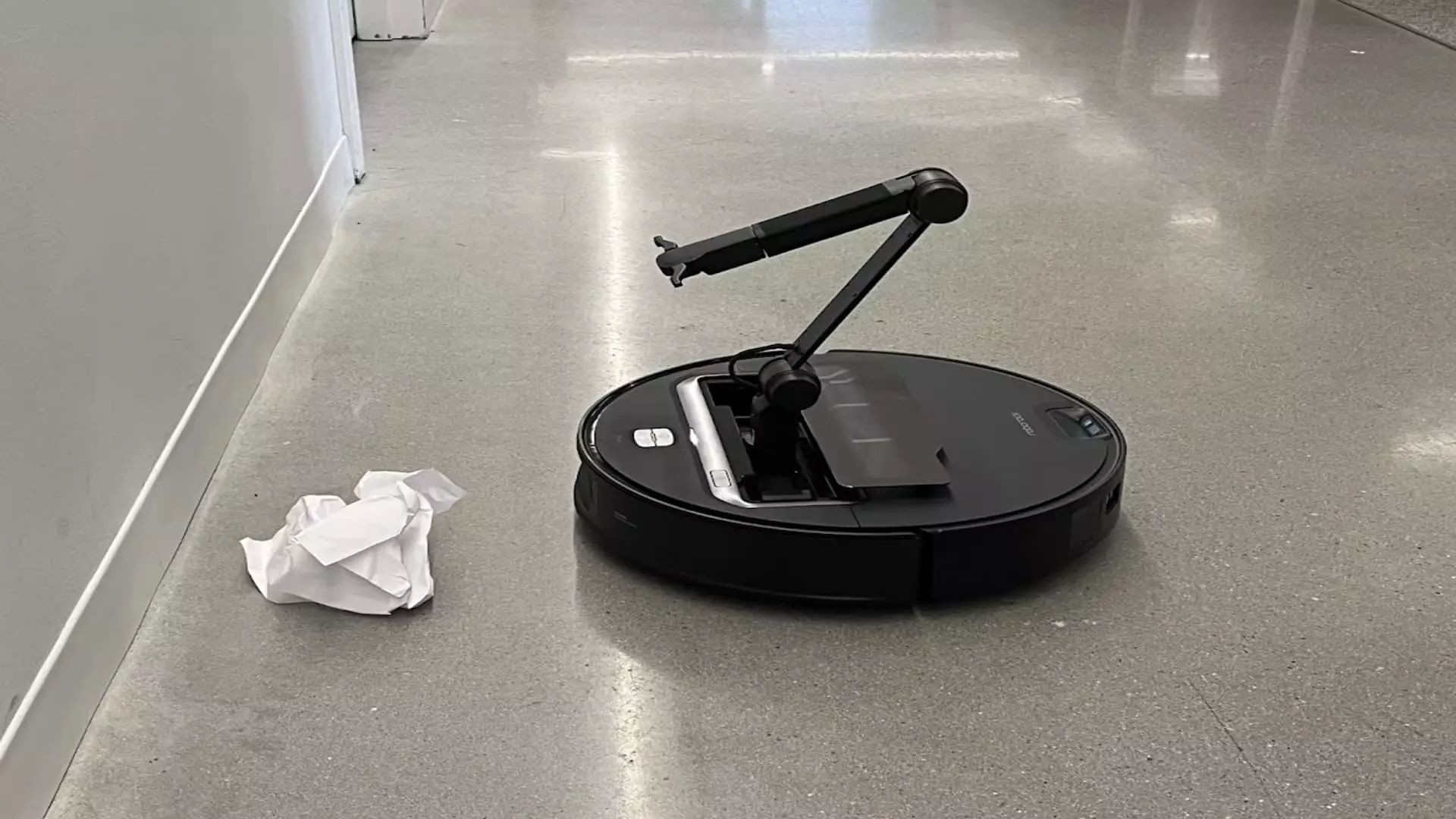The world of household appliances is undergoing a significant transformation as artificial intelligence (AI) becomes a central feature in modern technologies. Among the companies at the forefront of this AI revolution in the home care sector is Roborock, a Chinese manufacturer renowned for its smart cleaning solutions. Recently, Roborock unveiled its latest offering—the Saros Z70 robot vacuum, equipped with a groundbreaking folding arm designed to tackle everyday obstacles like socks and small towels, a leap toward an integrated smart home experience.
The Vision of the Future: Robot Vacuums as Essential Appliances
Roborock’s President, Quan Gang, envisions a future in which robot vacuum cleaners, akin to washing machines, become ubiquitous in households. In a recent interview, he expressed confidence that, in a rapidly evolving technological landscape, these devices could become essential within the next three years. This forecast hinges on the burgeoning capabilities of AI, which enhances the functionality of home devices, potentially making them indispensable for modern living. Quan’s assertion sets a bold expectation for the industry and highlights the transformative power of intelligent machines in our daily lives.
The Roborock Saros Z70 features proprietary AI technology that enables it to recognize and avoid small household items, such as slippers, socks, and delicate towels weighing under 300 grams. This innovative capability signifies a substantial shift from traditional robot vacuums, which often struggled with similar challenges. Slated for a global launch in 2025, details regarding its pricing remain undisclosed. The unveiling occurred just prior to the Consumer Electronics Show in Las Vegas, hinting at Roborock’s ambition to capitalize on the spotlight to capture consumer interest.
The robot vacuum market has grown significantly since the introduction of the iRobot Roomba in 2002, which marked the beginning of automated floor cleaning. Today, numerous manufacturers compete aggressively in this space, with a plethora of options available to consumers aiming for convenience. Roborock has made significant strides since commencing sales in the U.S. market in 2018, achieving notable success as demand surged in 2023. Despite increasing competition, robot vacuum penetration rates remain low, at just over 10% in established markets and even lower in emerging economies. Quan sees this as both a challenge and a significant growth opportunity, particularly as AI integration leads to enhanced functionality.
Recognition and Performance: Standing Out in the Market
Roborock’s recent models have received widespread acclaim, winning accolades from prominent tech publications like The Verge and Wired. The S8 MaxV Ultra emerged as a premium model, noted for its hands-free operation features, while the Qrevo S was highlighted for its advanced navigation capabilities. However, the premium pricing—such as the S8 MaxV Ultra retailing for approximately $1,800—raises questions about accessibility for the average consumer. As several competitors enter the marketplace with lower-priced alternatives, Roborock must continue to innovate and justify its premium positioning.
Roborock’s commitment to research and development is robust, with nearly 9.1% of its operating revenue allocated to R&D in the first three quarters of 2024, up from previous years. This strategic investment supports the establishment of dedicated laboratories focused solely on advancing AI technologies. Yet, the company faces challenges in talent acquisition, as finding skilled personnel in the AI field is increasingly difficult. Expanding its research teams to 300 members, according to Quan, will be critical to maintaining their competitive edge and driving further innovation.
As Roborock continues to innovate and redefine the capabilities of robot vacuums, its advancements signal a pivotal shift in everyday household management. The integration of AI into home appliances promises to make cleaning more efficient and less of a chore for consumers. As these technologies develop further, we may soon find robot vacuum cleaners not just useful but essential, a testament to the ongoing evolution of our interconnected world. With growing consumer demand and increasing sophistication in AI applications, the future of cleaning technology seems brighter than ever.

